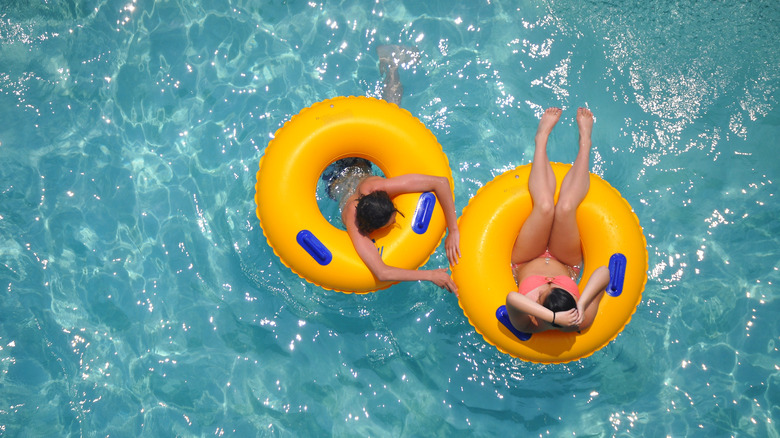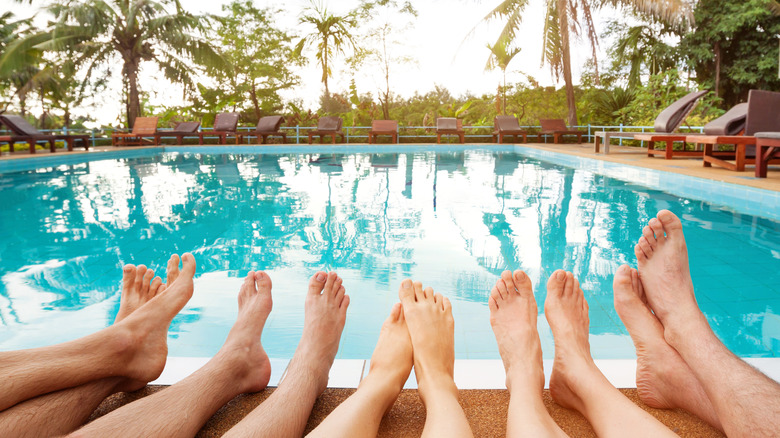The Gross Reason You Should Stay Away From Public Pools
With the arrival of warmer weather comes another seasonal urge — the desire to jump in a pool. Unfortunately, millions of our fellow citizens have the exact same desire, and that leads to crowded public pools — not to mention a guaranteed smattering of pool-related disease outbreaks over the summer months.
Swimming pools can be wonderfully cool and refreshing on a hot day, but they can also be potential health hazards. The problem is dual. First of all, some public pools just don't keep up with necessary cleaning and disinfecting standards. In fact, a 2008 government report found that, upon inspection, one in eight public pools was immediately shut down due to dirty water or other serious safety violations, like lack of adequate safety equipment (via Live Science).
The second problem lies with us, the pool-goers. Too many of us just don't follow the basic hygiene rules for pool use, like showering before getting in the pool, and washing hands after using the bathroom. And worst of all, of course, is the fact that one in five of us actually admit to peeing in the pool (and there are probably more who didn't fess' up!) (via Live Science). One study conducted by the University of Alberta found that a 220,000-gallon pool could contain, on average, about 20 gallons of urine (via BBC). Gross, right?
The scent of chlorine doesn't signal a clean pool
Surprisingly though, it's not actually the urine, or other commonly detected substances (like fecal matter, sweat, and cosmetics) that poses the biggest health problem. It's the mixing of these compounds with chlorine and pool disinfectants that can really cause a problem. And don't be reassured by the smell of chlorine wafting off the water.
Mary Ostrowski, senior director of chlorine issues at the American Chemistry Council, says, "Properly treated swimming pools do not have a strong chemical odor. When chlorine in pool water combines with substances such as dirt, body oils, sweat, urine, and fecal matter from swimmers' bodies, chemical irritants called chloramine are produced. It is chloramines in pool water, not chlorine, that give off that chemical odor and cause swimmers' eyes to sting and redden" (via WebMD). Strong pool smells are actually an indication that the pool is really dirty, not clean.
There are things you can do to minimize the dangers of public pools, though. First off, clean up before getting in the water. Yes, you should actually shower before jumping in. Secondly, don't swallow the water. Even one gulp could be enough to wreak havoc on your gut. And of course, don't pee in the water. A little more respect for the other pool-goers across the board would make a big difference overall.


